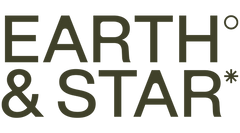Natural Ways to Lower Blood Pressure: 5 Tips
These days there's a pill for whatever your ails you. The problem, of course, is that those pills cause new ails, and blood pressure medication is no exception. Fatigue, weakness, leg cramps, erectile dysfunction, insomnia, depression, chronic cough, skin rash, loss of taste, constipation, heart palpitations, swollen ankles, dizziness, anemia, dry mouth, diarrhea, heartburn, congestion, joint aches, and oddly, excessive hair growth are all potential side effects from the cornucopia of blood pressure medications on the market.
With one in three Americans between the ages of 40 and 59 suffering from high blood pressure, it's not hard to see how taking a single pill in midlife can turn into the need for a jumbo-sized weekly pill organizer in our twilight years. And while it's undeniable that certain people need medication, many of us can control our blood pressure strictly through lifestyle choices alone. But first, let's talk about what high blood pressure means.
As Serious as a Heart Attack
Blood pressure is the measure of the pressure of your blood pushing against your arteries' walls as it is carried to other parts of your body. Systolic pressure (the top number on your blood pressure reading) measures the pressure of the blood when the heart beats; diastolic pressure (the bottom number) is the pressure occurring between the beats. High blood pressure, also known as hypertension, is diagnosed when the systolic number is 140 or higher, or the diastolic number is above 90. While it's normal for our blood pressure to change throughout the day, if these numbers stay consistently high, we're at risk for stroke, kidney failure, aneurysm, heart failure, dementia, and even blindness. Stack these against the somewhat uncommon side effects listed for blood pressure medication, and some extra hair growth and a musty mouth don't seem so bad after all.
But many of the approximately 28% of people suffering from high blood pressure in the United States don't have to make that choice. Instead, they can make different choices, which not only are without negative side effects, but can also vastly improve their quality of life across the board.
Get Up, Get Out, and Do Something
Trade in those blood pressure meds for some good old fashioned exercise. A 2013 meta-analysis of 23 studies representing 1226 older adults found that aerobic exercise lowered participants' blood pressure by an average of 3.9 to 4.5%, a result that rivals the effects of some blood pressure medications. Tired of being told to exercise? Then just get your butt outside–and once you're there, you can sit back down on it again. A study from Cornell University found that spending 10-50 minutes in nature was enough to lower blood pressure (as well as improve mood and focus). These results held even when the participants were simply sitting among the trees.
Go Bananas
Potassium relaxes the tension against the blood vessel walls, which helps to lower blood pressure. In a two-for-one deal, it also helps our bodies digest sodium, an enemy of healthy blood pressure. But before you go thinking a banana a day will keep high blood pressure away, keep in mind that the daily recommended potassium intake for an average adult is 4,700 milligrams, and bananas have around 422 mg. Thankfully, you can get your potassium from a whole slew of foods, including yogurt, spinach, fish, avocados, and cantaloupe.
Take a Deep Breath
Meditation, mindfulness, and relaxation can all help to lower high blood pressure. In a three-month study conducted by Boston's Benson-Henry Institute for Mind-Body Medicine, 40 out of the 60 patients who practiced a relaxation technique found their blood pressure declined enough to reduce their medication dosage. This is in part thanks to relaxation's ability to increase nitric oxide in the body, which causes blood vessels to dilate, allowing blood to pass through more freely. Can't stand the idea of just sitting there? Would a sauna sweeten the deal? In a study of 1600 middle-aged men in Finland, researchers found that those who took a sauna 4-7 times a week (wherever do they find the time?) cut their high blood pressure risk almost in half. Why? It may have something to do with the fact that our blood vessels expand when our body temperature rises. It might also be thanks to the sodium-containing fluids that are extracted from our body by sweating and the aforementioned benefits of relaxation.
Hurrah for Reishi
In addition to providing immune-support and lowering stress, studies have found Reishi mushrooms lower blood pressure in people with severe hypertension. Often called "the mushroom of immortality," this is one fungi you want on your side.
Go Fish
Taking fish oil or an omega 3 supplement has some impressive effects when it comes to blood pressure. A meta-analysis found that participants with hypertension lowered their systolic blood pressure by an average of 4.5 mm Hg and their diastolic by 3.0 mm Hg. And to be filed under good news for the "F You I Won't Do What You Tell Me" crowd out there, a review published in the American Journal of Hypertension found that omega-3's lowered blood pressure just as much as exercising, reducing sodium, or limiting alcohol. And also, just for the record, we’re not going tell you to cut back on alcohol in these trying times. Or lose weight. Or stop smoking. But if we were those kinds of assholes, those three things would be on the top of this list.
Craving less pressure? Try one of our four delicious coffees loaded with Reishi, Cordyceps, Lions Mane, and Chaga and let the mushrooms work their magic.



